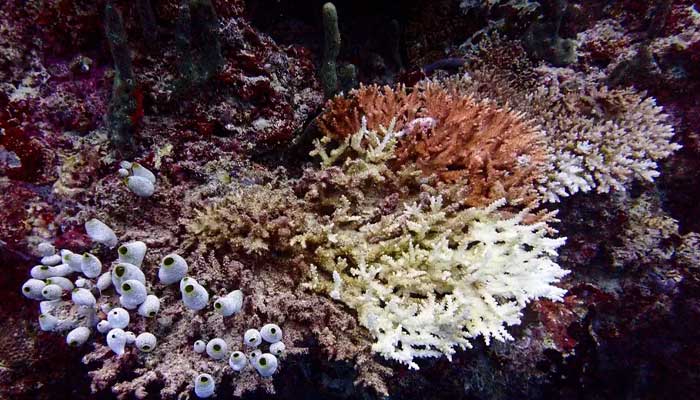Around 84% of the global’s coral reefs have been reportedly in danger due to most intense bleaching event in recorded history.
On Wednesday, April 23, the International Coral Reef Initiative (ICRI), which is made up of more than 100 governments, non-governmental organisations, has shared that coral is facing one of the worst bleaching event in the history.
This marks the fourth global event affecting coral since 1998, and has now surpassed bleaching from 2014 to 2017 that hit some two-thirds of reefs.
ICRI further added in a shared statement that it is unclear, when the event will end, which is being blamed on warming ocean.
Last year was Earth’s hottest year on record, which directly affected the ocean’s temperature.
This level of temperature is deadly to corals, which are key to seafood production, tourism and protecting coastlines from erosion and storms.
Coral reefs are also referred to as “rainforest of the sea” as they support high levels of biodiversity.
The bright colours of coral are due to colourful algae that live inside them and are a food source for the coral.
Prolonged warmth causes the algae to release toxic compounds, and the coral reject them, leaving a stark white skeleton behind.
National Oceanic and Atmospheric Administration Coral Reef Watch program has added levels of bleaching alert scale to account for the growing risk of coral death, and efforts are underway to conserve and restore coral.







